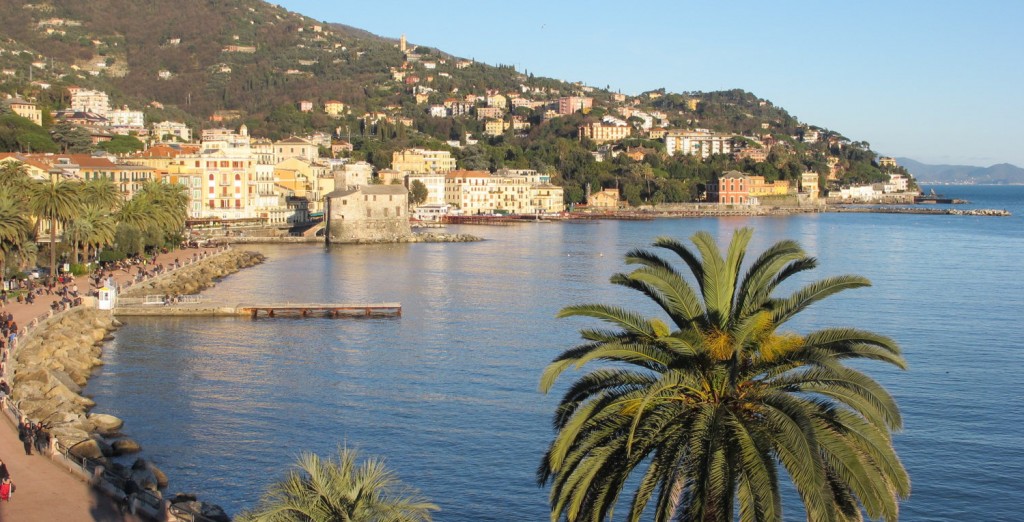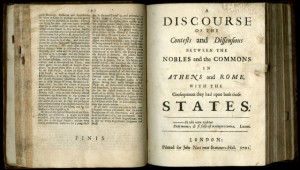Over the last few months, my research interest has turned towards the examination of the influence of Italian Fascism and authoritarian politics on William Butler Yeats’s oeuvre. I usually discuss this topic with regard to Luigi Pirandello’s and Yeats’s theatre, but this time, I chose to explore this theme in Yeats’s reading of the eighteenth-century Anglo-Irish writer and thinker Jonathan Swift.
 Yeats was familiar with Swift’s work throughout his literary career, but interestingly, it was only from 1929 on that he started to find his own voice in Swift and create his particular Swift-myth as well. In this project, I have proposed that Yeats intentionally radicalised Swift to express his own wish for an authoritarian government in contemporary Irish politics. His radicalisation of Swift becomes the most manifest in his particular Swift-myth that Yeats illustrates and dramatises in his play The Words upon the Window-pane. The aspects that Yeats radicalised included mainly Swift’s elitism and authoritarian voice. I examined these in the similarities and differences between Swift’s original ideas expressed in his essay A Discourse of the Contests and Dissentions Between the Nobles and the Commons in Athens and Rome (1701) and Yeats’s appropriation of these ideas in his play The Words upon the Window-pane (1934).
Yeats was familiar with Swift’s work throughout his literary career, but interestingly, it was only from 1929 on that he started to find his own voice in Swift and create his particular Swift-myth as well. In this project, I have proposed that Yeats intentionally radicalised Swift to express his own wish for an authoritarian government in contemporary Irish politics. His radicalisation of Swift becomes the most manifest in his particular Swift-myth that Yeats illustrates and dramatises in his play The Words upon the Window-pane. The aspects that Yeats radicalised included mainly Swift’s elitism and authoritarian voice. I examined these in the similarities and differences between Swift’s original ideas expressed in his essay A Discourse of the Contests and Dissentions Between the Nobles and the Commons in Athens and Rome (1701) and Yeats’s appropriation of these ideas in his play The Words upon the Window-pane (1934).
Yeats’s radicalised authoritarian Swift-myth derives from his own Anglo-Irish elitism: he was convinced that it was only the despotic rule of the Anglo-Irish Protestant aristocracy that could put an end to Ireland’s degeneration. He condemned the Irish bourgeois class, whose power was increasingly growing in Yeats’s time. In spite of his idealisation of the Anglo-Irish, however, Yeats was also aware of the problems with this class. As the prominent Yeats scholar Marjorie Howes puts it, “he also imagined Anglo-Irishness as a nationality founded on crime, perpetually in crisis and inherently subject to degeneration and decay”.

The City of Rapallo
Yeats formulated these elitist ideas under the influence of Italian Fascism in the 1920s and 1930s, and it is this that provided the context for his encounter with Swift. It is very important that Yeats started to read Swift’s Discourse during his stay in Fascist Italy (in the city of Rapallo). During that time, Yeats was fully immersed in Swift’s essay and Fascist politics, and in that atmosphere, he created his own interpretation of Swift’s pamphlet and his own myth of Swift as an Anglo-Irish, elitist, anti-democratic writer. He wrote in 1929: “For my first weeks I read nothing but Swift but he became too exciting for my blood pressure & so after some sleeplessness I took, on my wife’s advice to detective stories again.”

Mussolini’s Fascist Italy
Swift’s Discourse was an ideal starting point for him to create his myth of Swift and it was an ideal text to appropriate to the Irish context and his own elitist discourse of decay. Swift warns against the contemporary English society’s fall into degeneration by pointing out the reasons for the decay of the initially ideal and strong Romans and Greeks. Even though in this pamphlet Swift does advocate the rule of a select few (the patricians), points out the faults and dangers of democracy, and applies a highly elitist style, his elitism and authoritarianism were less radical than Yeats’s

Swifts’ “Discourse”
interpretation of them. Yeats could use Swift’s essay to support his idea of the necessity of the rule of a select Few (the educated aristocrats) and his condemnation of the power of the Many (the middle-class) mainly because Swift too communicated a strong critique of the general public in his essay. As Yeats writes in his introduction to The Words upon the Window-pane: “Swift enforced his moral by proving that Rome and Greece were destroyed by the war of the Many upon the Few; in Rome, where the Few had kept their class organisation, it was a war of classes, in Greece, where they had not, war upon character and genius. […] He defines a tyranny as the predominance of the One, the Few, or the Many, but thinks that of the Many the immediate threat.”
Would you like to know how Yeats’s elitist reading of Swift turns the interpretation of The Words upon the Window-pane from the dramatisation of a complicated love story into a critique of the middle class? Then stay tuned, and check out the next part of this post in which I will show you how Yeats dramatises his peculiar Swift-myth.
Sources:
Yeats, William Butler. The Variorum Edition of the Plays of W. B. Yeats. Ed. Russel K. Alspach. New York: Macmillan, 1966. Print.
Howes, Marjorie. Yeats’s Nations: Gender, Class, and Irishness. Cambridge: Cambridge University Press, 1999. Print.
Sources of Images:

